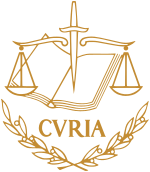D'Coque
Basketball venues in LuxembourgIndoor arenas in LuxembourgMusic venues in Luxembourg CitySports venues in Luxembourg CityVolleyball venues in Luxembourg

The National Sports and Culture Centre d'Coque (French: Centre National Sportif et Culturel d'Coque), better known simply as d'Coque, (English: The Hull or The Shell) is a sporting and cultural venue with an indoor arena and Olympic-sized swimming pool, amongst other facilities, in Kirchberg, a quarter of Luxembourg City, in Luxembourg. More recently it has expanded into providing onsite hotel services, and acting as a conference venue.
Excerpt from the Wikipedia article D'Coque (License: CC BY-SA 3.0, Authors, Images).D'Coque
Rue Léon Hengen, Luxembourg Kirchberg
Geographical coordinates (GPS) Address Nearby Places Show on map
Geographical coordinates (GPS)
| Latitude | Longitude |
|---|---|
| N 49.623611111111 ° | E 6.1541666666667 ° |
Address
Rue Léon Hengen 4
1745 Luxembourg, Kirchberg
Luxembourg
Open on Google Maps









